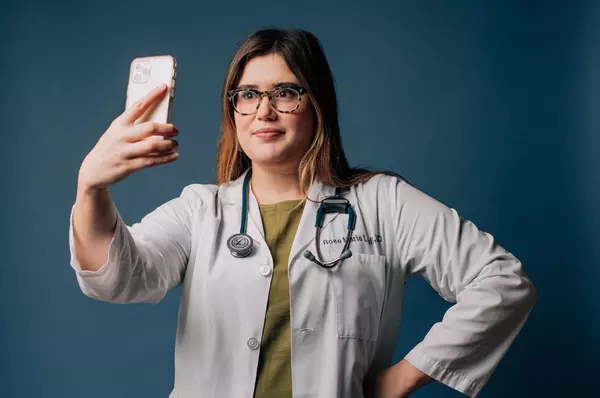Social media can be a hotbed of misinformation. But Nick Brody, associate professor and chair of communication studies, says public health experts like Rose Marie Leslie ’12 who take the plunge into social media platforms can help combat false information.

Brody, who researches the social implications of technology, says misinformation about topics like public health can spread easily for two reasons. One is that people just don’t know a lot about these topics in general, so when they turn to the internet for help understanding, “they’re likely not using the same terms experts use, since experts use a lot of jargon.” So when people type in a search term that doesn’t use any of that jargon, and nothing reliable comes up, “they go to whoever has monopolized that search term. And often those are people who are not experts.”
Then there’s a problem that isn’t really new, but social media has exacerbated it: We trust our social connections more than someone we don’t know. “We rely on people we already have a preexisting relationship with, so if they’re putting something out there, we have an inherent trust that what they’re saying is true,” Brody says. So we click “share” without checking on the information first, and if it isn’t true, then misinformation gets amplified.
People like Leslie are helping to fill in those information voids. “It’s really, really important for experts like Dr. Leslie to be speaking and creating content in these spaces,” Brody says. “You have to meet people where they are. So many young people are getting health information from TikTok and social media more broadly. We may wish they were getting health information from a doctor, but there are all kinds of reasons why people don’t—so people are going to do it, anyway. I see Dr. Leslie's online presence as a public service.”
Other experts can take a cue from Leslie, says Brody, if they’re hoping to expand their own platforms. “What Dr. Leslie is doing—creating engaging, funny content that taps into the TikTok trends going on right now, and the memes that are spreading right now—that’s all rewarded in the algorithm, which exposes more people to the content.”
And having more of these real experts online can help to combat the trust problem. “People can also form what we call parasocial relationships with media characters, online influencers, politicians, and celebrities,” Brody says. “They feel like they have a true relationship with that person.” So the more an expert can foster those relationships, like showing their real personality in their videos and engaging with followers in the comments, the more they strengthen the bond—which makes people more likely to trust and share the information they’re giving out.
—By Maggie Mertens